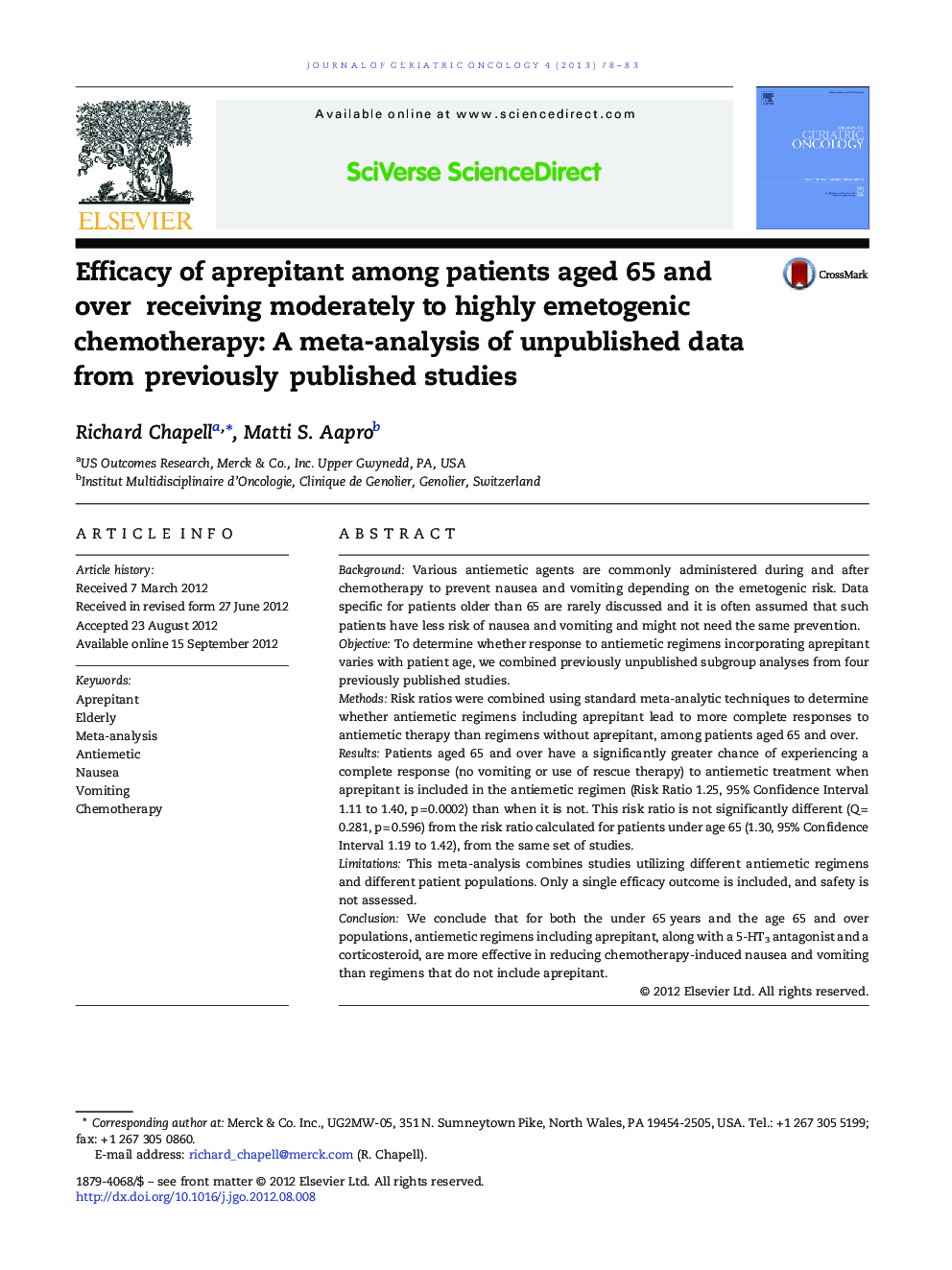| Article ID | Journal | Published Year | Pages | File Type |
|---|---|---|---|---|
| 1912906 | Journal of Geriatric Oncology | 2013 | 6 Pages |
BackgroundVarious antiemetic agents are commonly administered during and after chemotherapy to prevent nausea and vomiting depending on the emetogenic risk. Data specific for patients older than 65 are rarely discussed and it is often assumed that such patients have less risk of nausea and vomiting and might not need the same prevention.ObjectiveTo determine whether response to antiemetic regimens incorporating aprepitant varies with patient age, we combined previously unpublished subgroup analyses from four previously published studies.MethodsRisk ratios were combined using standard meta-analytic techniques to determine whether antiemetic regimens including aprepitant lead to more complete responses to antiemetic therapy than regimens without aprepitant, among patients aged 65 and over.ResultsPatients aged 65 and over have a significantly greater chance of experiencing a complete response (no vomiting or use of rescue therapy) to antiemetic treatment when aprepitant is included in the antiemetic regimen (Risk Ratio 1.25, 95% Confidence Interval 1.11 to 1.40, p = 0.0002) than when it is not. This risk ratio is not significantly different (Q = 0.281, p = 0.596) from the risk ratio calculated for patients under age 65 (1.30, 95% Confidence Interval 1.19 to 1.42), from the same set of studies.LimitationsThis meta-analysis combines studies utilizing different antiemetic regimens and different patient populations. Only a single efficacy outcome is included, and safety is not assessed.ConclusionWe conclude that for both the under 65 years and the age 65 and over populations, antiemetic regimens including aprepitant, along with a 5-HT3 antagonist and a corticosteroid, are more effective in reducing chemotherapy-induced nausea and vomiting than regimens that do not include aprepitant.
